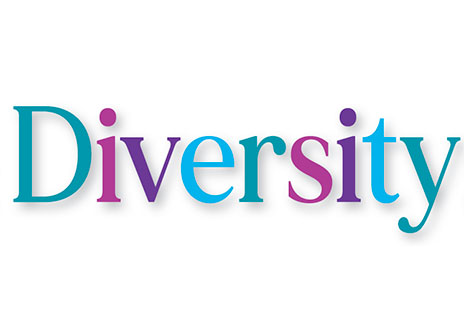Gaming & Diversity: Staying the Course

In the U.S., workplace diversity efforts began in the mid-1960s, with the passage of the Civil Rights Act and creation of the Equal Employment Opportunity Commission. But 60 years later, equality on the job remains a work in progress—and recently, under threat.
Covid-19 pulled the rug out from some diversity, equity and inclusion (DEI) efforts, and post-Covid, critics have felt freer to slam the efforts as tokenism or even reverse racism. Last year, the Supreme Court ruled that affirmative action in higher education is unconstitutional, conceivably opening other DEI policies to legal challenge. Recently, billionaire businessman Elon Musk said DEI “discriminates on the basis of race, gender and many other factors,” and thus is “not merely immoral, (but) also illegal.”
So what began as a way to end discrimination is itself being called discriminatory, despite data that shows companies with a diverse workforce perform better financially and retain more high-level talent.
Even supporters complain that DEI is sometimes more about lip service than genuine action. Christina Thakor-Rankin, co-founder of the All-In Diversity Project, has said some companies promote DEI measures “because it’s on trend or everyone else is,” but with little follow-through.
As the debate continues, the gaming industry is demonstrating better results than the corporate world at large. In an April 2023 report, the American Gaming Association (AGA) said the U.S. gaming industry outranks others for diverse workforces, with 61 percent of employees coming from ethnic/racial minorities versus 42 percent nationwide.
Facing Down Challenge
Penn Entertainment has become a model of DEI in action. Last year, the U.S. regional casino operator made the Forbes list of “America’s Best Employers for Diversity,” topping other publicly traded gaming companies, and also made Newsweek’s list of great workplaces. Across the spectrum, in 2022 Penn employees were 51.6 percent male and 48.4 percent female—almost an even split.
“Studies have shown that bringing together individuals with diverse backgrounds, perspectives and experiences can create higher-performing teams and increase business results,” says Wendy Hamilton, the company’s senior vice president and chief human resources officer. “We’re better when we have access to the maximum number of options for solving a challenge—this means bringing many varied perspectives to the table.”
Penn Women, launched last year, has enrolled some 800 women in programs to identify their career goals and pair them with mentors to “grow the pipeline of female leaders,” says Hamilton.
“To be clear,” she adds, “not all Penn Women events are gender-exclusive. We’re interested in and responsible for helping every Penn team member thrive, so male participants are critical… We’ve been thoughtful about how to best further diversity among our team without making any group feel less valued or creating a larger gap between genders.”
Penn also courts diverse partners, creating opportunity for vendors and suppliers owned by “minorities, women, people with disabilities, veterans and members of the LGBTQIA+ community. We’re spending millions of dollars and helping to create double- and even triple-digit growth for several companies we work with,” says Hamilton.
The company is also solving an age-old dilemma—how to get a job that requires experience if you can’t get experience without the job. Through its Emerging Leaders program, aspiring managers, including front-line employees, learn the skills associated with management. In 2023, 77 percent of participants were diverse and/or female.
The Blind Side
Lacking awareness, even well-intentioned HR professionals may be influenced by gender, race, age or other demographic factors in the interview room. As diversity expert and author Iris Bohnet has said, “The fact is, Latisha and Jamal do not get the same number of callbacks as Emily and Greg.”
For that reason, some HR departments don’t rely fully on human decision-making when hiring, but use software programs that conceal applicant details (like names indicating gender or ethnicity) to keep the focus on qualifications.
If diversity throughout the ranks looks good in annual reports, it also produces positive returns. A new study from the World Economic Forum (WEF) cites research showing a “consistent correlation” between diversity in leadership and stronger financial performance. Diversity has also been linked to increased productivity and greater innovation.
The latest “Diversity Matters” report from McKinsey says companies that lead in ethnic representation have a 39 percent better likelihood of outperformance, and those with women in 30 percent of executive positions “are significantly more likely to financially outperform those with 30 percent or fewer.”
Which begs the question: Why aren’t more companies more committed to creating a diverse workplace? As the WEF notes, diversity “is not an innovation problem… It’s an execution problem, a cultural problem and a scaling problem. Verbal commitments are easy and rife. Accountability and performance are more important and less common.”
At Las Vegas-based fintech company Sightline Payments, “one of the things we’re very proud of is that we have gender parity in leadership,” says Felicia Gassen, chief administrative officer and chief of staff. “We have as many female leaders as male leaders, and our C-suite and senior-level executives have a greater than equal ratio of women to men.”
Sightline guards against unconscious bias in part by “decoding gender linguistics in job postings,” says Gassen. “We don’t use terms like ‘ninja’ or ‘rock star’”—words that can read as male-specific. “We also make sure we have a diverse hiring panel when we’re interviewing.”
Part of supporting a diverse workforce is acknowledging the responsibilities of parenthood, which still fall mostly to women, and providing flexibility for all caretakers.
“Sightline provides paid family leave for new parents, adoptive or foster parents—and that’s regardless of gender,” says Gassen. “We’re incredibly flexible in how we handle family demands and day care. One of the jokes around here is that, depending on the time of day and the time zone, it’s always school pickup time. And we’re all OK with someone saying, ‘I’ve got to go get the kids.’”
All Things Being Equal
In the past three years, MGM Resorts International has made the Forbes/Statista list of Best Employers for Diversity, been named a “diversity champion” by the Institute for Supply Management, and been lauded by organizations like the Women’s Business Enterprise Council, the Asian Chamber of Commerce Las Vegas, the Hispanic Association on Corporate Responsibility, and media firm Black Enterprise.
Tony Gladney, MGM’s vice president of DEI, says the global giant looks “beyond hiring practices to ensure access to potential opportunities for leadership.”
Employee Network Groups (ENGs) open the door. Nationwide, MGM has 13 groups and 22 chapters, which Gladney describes as “hubs for leadership development that create networking and mentorship opportunities.” Mentorship and leadership programs offer education and exposure to decision-makers.
In its 2023 Social Impact and Sustainability Report (SIS), MGM set goals to ensure women and minorities have equal access to leadership opportunities from 2025 through 2030, and to invest at least 15 percent of domestic biddable contracts with diverse suppliers (last year, that added up to $412 million).
One success story is Park Cleaners, a multi-generational family business in Springfield, Massachusetts, that expanded its contract with MGM from cleaning hotel linens to managing all the property’s laundry and dry cleaning. MGM then paired the business with a laundry provider for MGM National Harbor in Maryland to learn best practices and set the right rates for the market.
According to the SIS report, this helping hand benefited Park Cleaners, the local economy and MGM Springfield, which “achieved cost savings and decreased carbon emissions from linen transport.”
MGM invests in its workers with flexible scheduling, flexible time off, and hybrid or work-from-home options whenever possible. “Our team members are more productive and engaged when their needs at home are met,” says Gladney. “These policies are designed to accommodate the family demands our employees face.”
In addition, MGM’s Boots to Business program helps veterans and their spouses find new careers in gaming and hospitality. The company also seeks out job-seekers with disabilities.
The Color Wheel
Some companies tie advances in DEI to compensation, like Citigroup, which employs 220,000 people worldwide and displays executive scorecards on diversity at every board meeting. The global investment bank, led by CEO Jane Fraser, has seen the number of women on its executive team grow from 8 percent in 2014 to more than 30 percent in 2019.
Over time, the issue of workforce diversity may start to resolve itself, due to shifts in population as well as perspective. According to 2020 U.S. census data, by 2060 one in three Americans will be non-white, and the fastest-growing U.S. racial or ethnic group will be biracial or multiracial.
It behooves companies to get ahead of the curve. In response to Elon Musk’s tweet about DEI, Dallas Mavericks owner Mark Cuban said, “DEI-phobic companies’ loss is my gain. Having a workforce that is diverse and representative of your stakeholders is good for business.”
Meanwhile, it still can be surprising to see employees in non-traditional roles. Women are still scarce in fintech, for example, holding fewer than 30 percent of jobs overall and a mere 8 percent of leadership roles, according to Deloitte. Sightline’s Felicia Gassen recounts a recent meeting with a vendor team and their chief revenue officer, a woman.
“She was so thrilled that three senior-level women from the gaming and fintech industries were coming to meet with her,” Gassen recalls. “She said in all her years working in the industry, she had never had a meeting with just women. I can’t tell you how delighted she was.”
Keys to the Kingdom
While the gaming industry is making progress in diversity, it’s not exclusively a success story. According to the AGA’s 2023 diversity report, gender parity “drops off at more senior-level job classifications,” with women holding just 30 percent of executive or senior-level posts against a national average of 32.1 percent.
McKinsey and LeanIn.org have identified a “broken rung” at the management level, which prevents more women from rising beyond entry-level managerial positions, and thereby shuts them out of the executive tier (women now occupy 28 percent of C-suite roles, up from 17 percent in 2015).
Penn Entertainment is committed to closing those gaps, says Hamilton, pictured above with her mentee, Haley Zenon. “For the last three years, we’ve been recognized by the Forum of Executive Women as a ‘Champion of Board Diversity’ for having a board composed of 44 percent female members.”
The company “teams members at all levels with an appropriate mentor, helps each pair establish mentoring goals, and provides relationship tracking and content support,” says Hamilton. “To date, we have 51 female mentees, and 46 female mentors, and the program is still ramping.”
“Having a mentor has been a motivational experience for me, personally and professionally,” says Zenon, of the HR department at L’Auberge Lake Charles Casino Resort in Louisiana. “Wendy Hamilton encourages me to step outside my comfort zone, while providing me guidance, support and feedback that I’ll take with me throughout my career.”
Obstacles notwithstanding, Hamilton says, “I like to think any of us can achieve our best if we work, learn and contribute consistently. We all face setbacks occasionally, and I like to look inward when this happens, and focus on what I can change or adjust about myself or my skills to achieve a better outcome.
“If there are broken rungs, we need to find and fix them—again, communication is key. Many times we hold more keys to our own success than we realize.”

